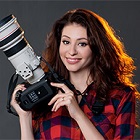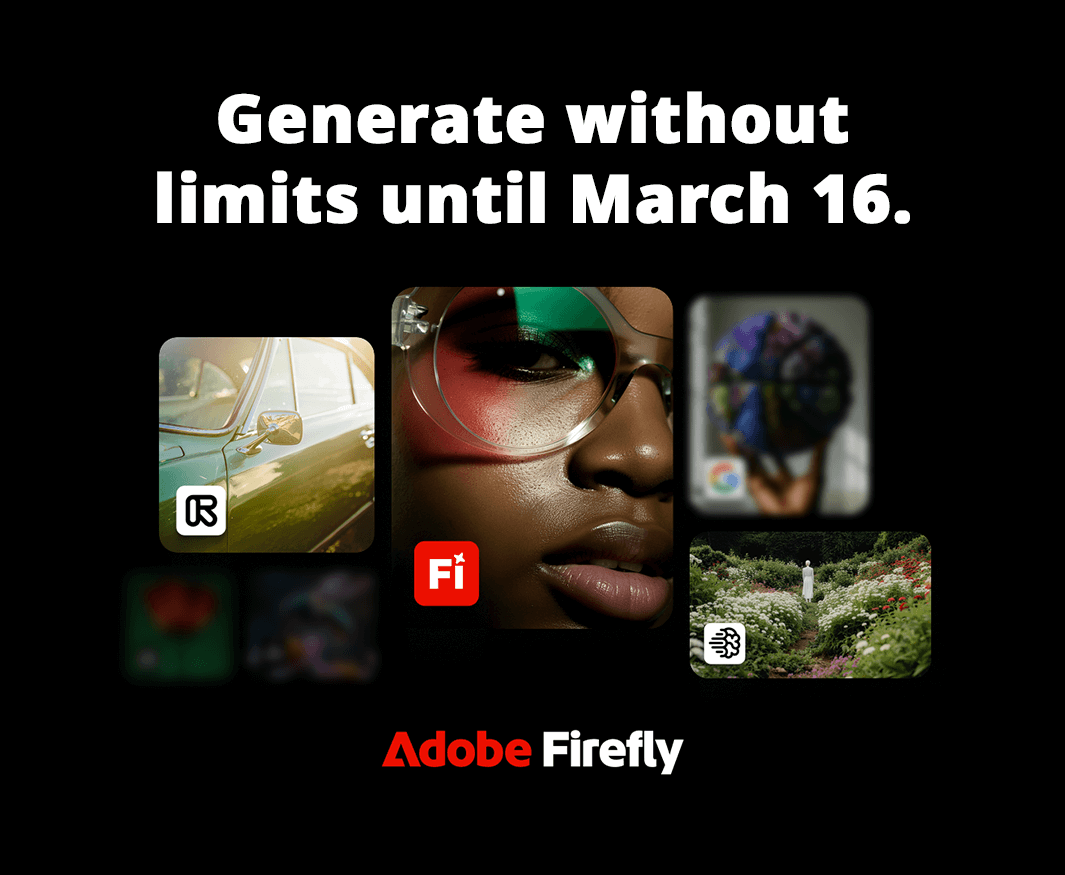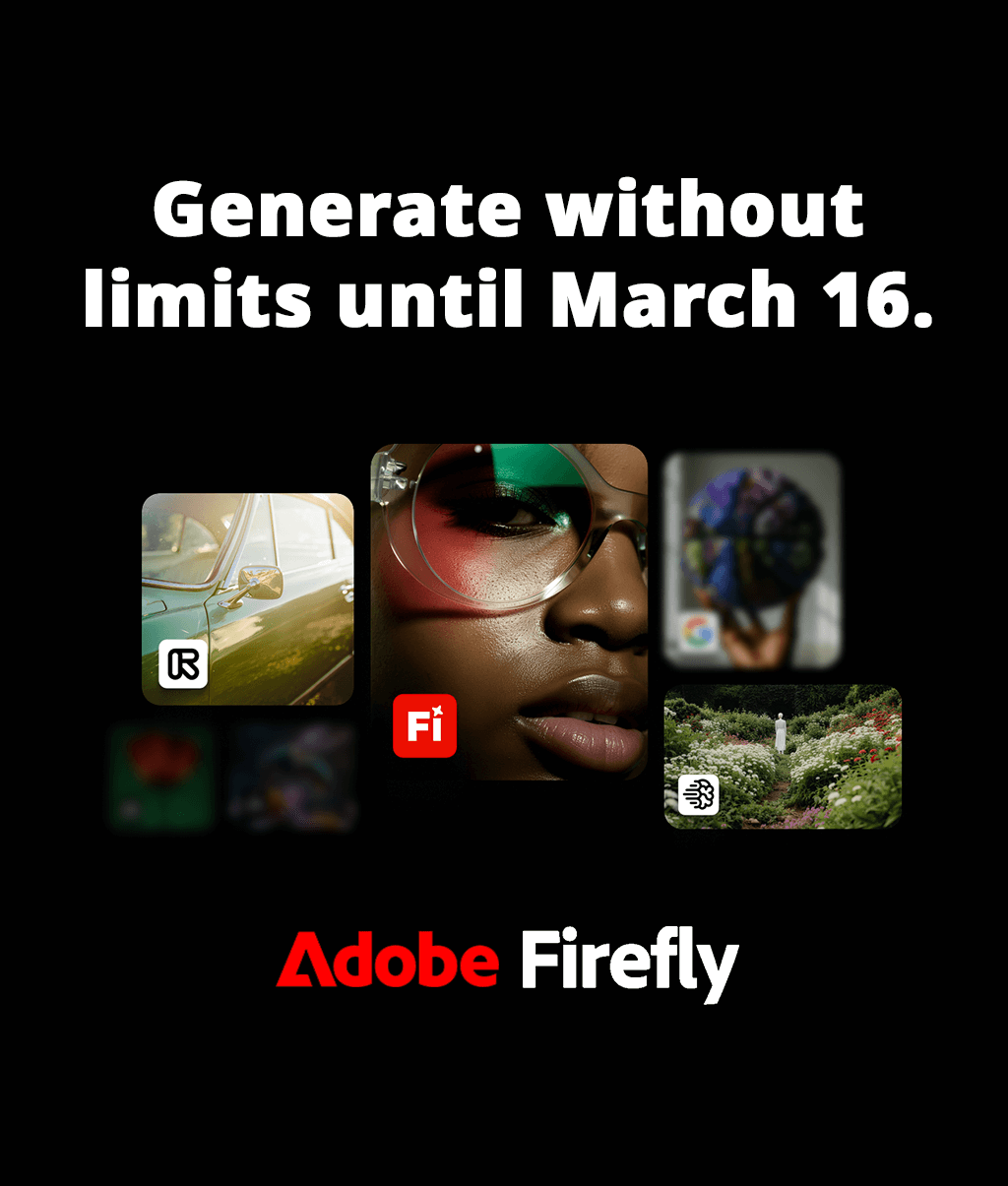Adobe Dimension Review 2026

VERDICT: Adobe Dimension is a program that lets designers see how their products will look in 3D in a couple of clicks. Instead of fiddling with hundreds of layers in Photoshop and Illustrator, you can simply transfer a 2D logo to a 3D object. It significantly simplifies the work of package designers.
What used to take 2-3 days to do can now be done in a few hours. Using machine learning, the program itself will determine the best lighting for the scene and place the lighting source in the right place. It can even automatically align objects relative to the horizon line.
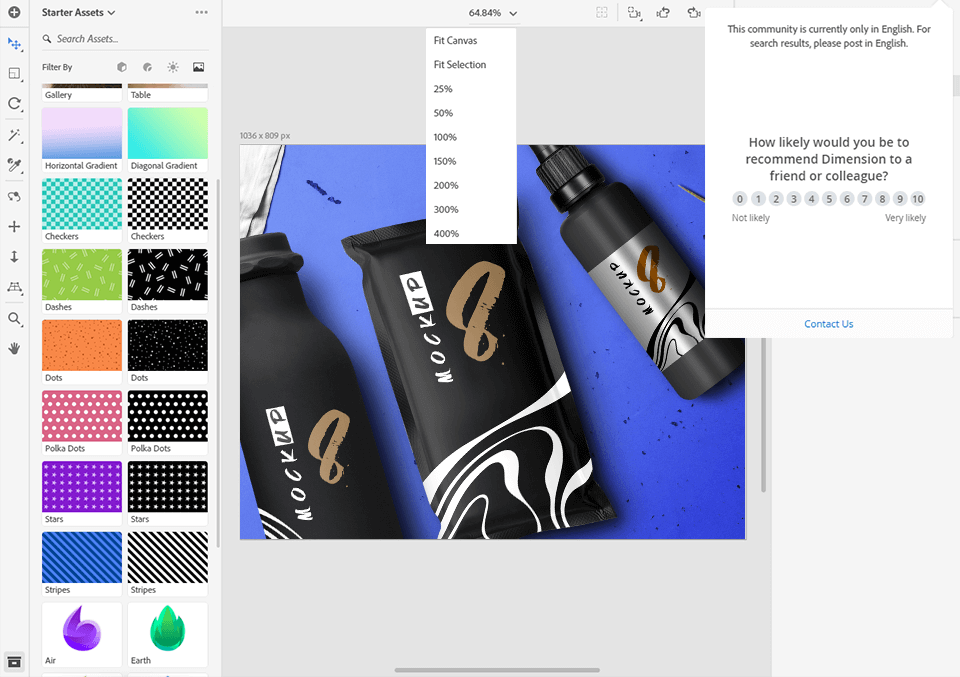
Just upload the drawing to Dimension CC, pick the desired mockup from the catalog (it offers different items: from pens to planes and space rockets) and “attach” the logo to the desired object. If it isn’t in the database, you can create it yourself or export it from another program.
Complete Adobe Dimension Review

The new version changed the rendering engine, letting customers choose their own rendering tools to speed up the preview. The system also integrates more smoothly with Illustrator and Photoshop, as well as the best virtual staging software, and supports Autodesk FBX, STL and Sketchup formats.
Large Selection of Ready-Made Models
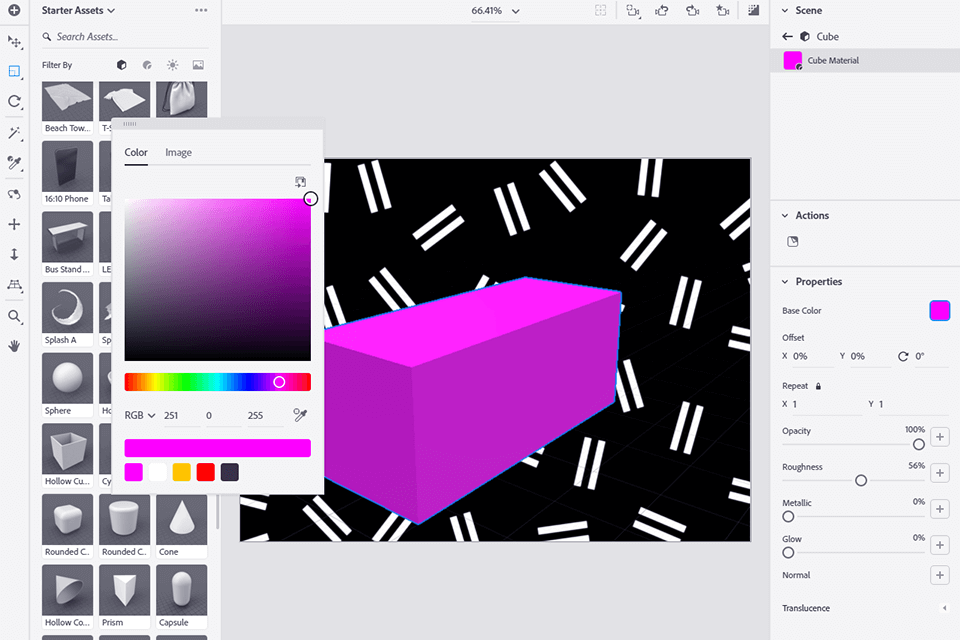
You will find dozens of different Adobe Dimension models in 3D, ranging from the simplest shapes to ready-mage models of bottles, cans, notebooks, boxes and packages. You can change their size, tilt and height using the guiding lines. It is possible to place multiple items on one surface.
- Check out more packaging design ideas.
More Than a Dozen Materials
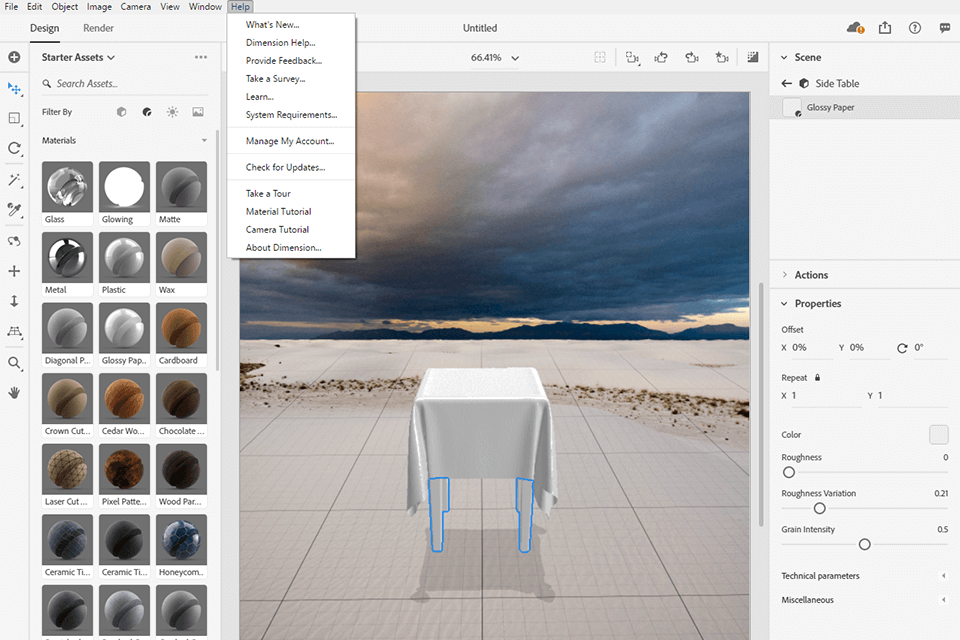
After selecting the model, you can pick the material and color that the item will be made from. There are more than 70 different materials to choose from – metal, plastic, fabric, liquids, wood. You can correct the color of each material, change the texture itself and add your own textures. This is very helpful if you're doing virtual staging.
- Check out of the Best Free VFX Software.
Ability to Work with Lighting Sources
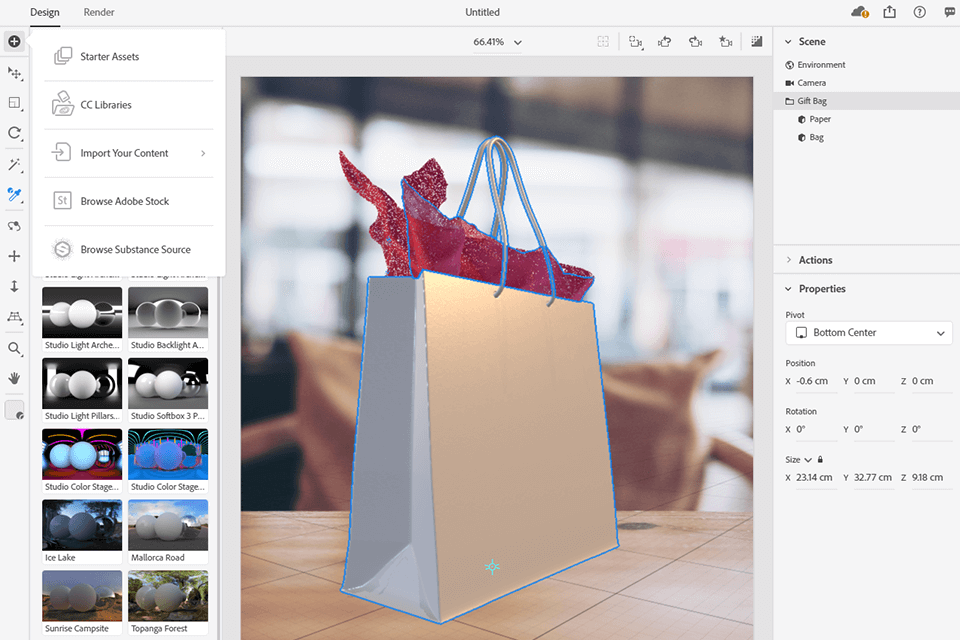
To create a photorealistic model of an object, you need to pick the right lighting. There are more than 20 different types of lighting to choose from. In Adobe Dimensions CC, as in a real studio, you pick the drawing light first, and then – the fill light.
You can combine different types of lighting, use two and three lighting sources. After selecting the desired light, you can change its direction, intensity, and even apply a color filter to it.
- If you want to create virtual staging, read about 3D Real Estate Photography.
Several Rendering Settings
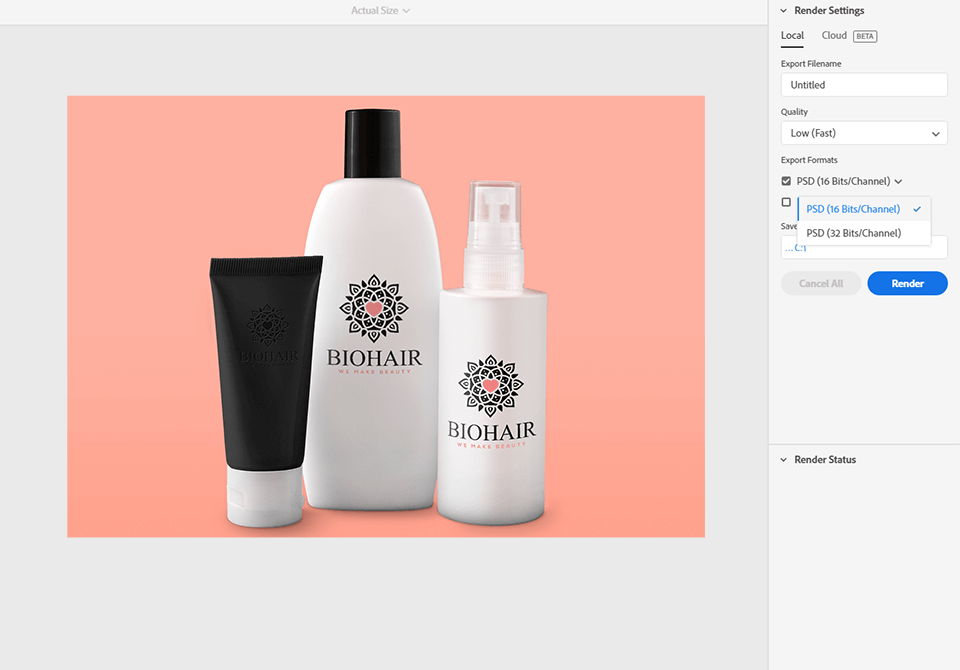
As for rendering, the V-Ray Dimension tool shows how the render will appear in real time. This way the user gets an idea of what the output image will look like, without wasting time on the final rendering. There are three render settings: Low, Medium and High. The better, the slower.
- Read more How to Create Illustrator Logos.
Convenient Cloud Rendering
Adobe Dimension offers automatic import of 3D scenes to the cloud, rendering via Adobe servers and streaming of the result to the user’s device. This way he/she will monitor the progress and download the end result.
The developers integrated that feature in order not to overload the computer and speed up the rendering process. In the course of this beta, each CC user will receive 15 free credits monthly. One render may require from 1 to 3 credits (it depends on the quality).
Ability to Import Substance Materials
Created with Substance Designer, Substance materials are based on parameters. It means that the user can achieve a huge number of various designs and patterns from a single Substance material. Now the program supports Substance materials with .SBSAR format import. Besides, the starter assets provide newly introduced Substance materials.
Ability to Use CC Library
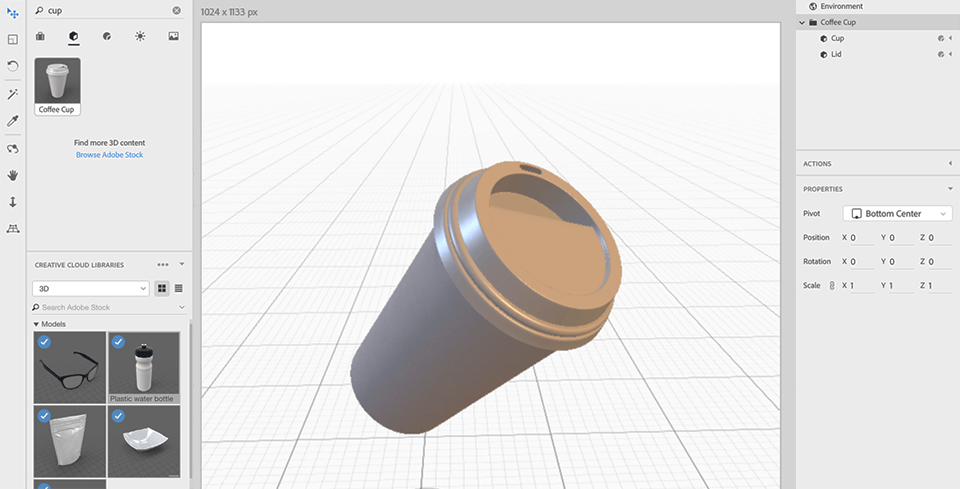
Adobe Dimension CC is now capable of saving the colors and graphics in CC Libraries. It means that the user can make a modification and it will be automatically saved in other program’s projects and other Adobe products.
Moreover, once you save a picture in CC Libraries, it will be linked to the cloud. So, if you edit this picture in Ps or Illustrator, it will be automatically updated in Dimension. As for the CC Libraries panel, it supports custom grouping now.
Scale Objects Easily Using Units and Dimensions
With the update, the process of scaling objects using units and dimensions has been simplified. It is possible to pick from a number of 3D measurement units and use them in the scenes.
New Update Features Textures of Higher Resolution
The Adobe Dimension update made it possible to place graphics onto models with greater control and more qualitative outcomes. Once you put a graphic onto a model, it will preserve a higher resolution, reduced pixelation and increased visual fidelity. It will bring more realism into a 3D scene.
Material Layers
The layer-based system of graphics and materials reveals the potential for various effects, such as foil processing, multiple logos, templates, etc.
Adobe Dimension Prices
You may use the program officially according to one of the two types of Creative Cloud subscriptions:
- All Apps Plan (Dimension, After Effects, Photoshop, Animate, Fuse and etc.) - $52.99/month
- Dimension Plan (Dimension CC, 100GB of cloud storage, Adobe Portfolio and etc) - $20.99/month
Depending on what exactly you will need to create, I would recommend different types of subscriptions. The best choice, of course, will be All Apps Plan due to the presence of such programs as Photoshop, Illustrator and InDesign. Together with Adobe Dimension, they will create an indispensable tool for 3D and 2D design.
- Save money using Hot Adobe Discounts.





